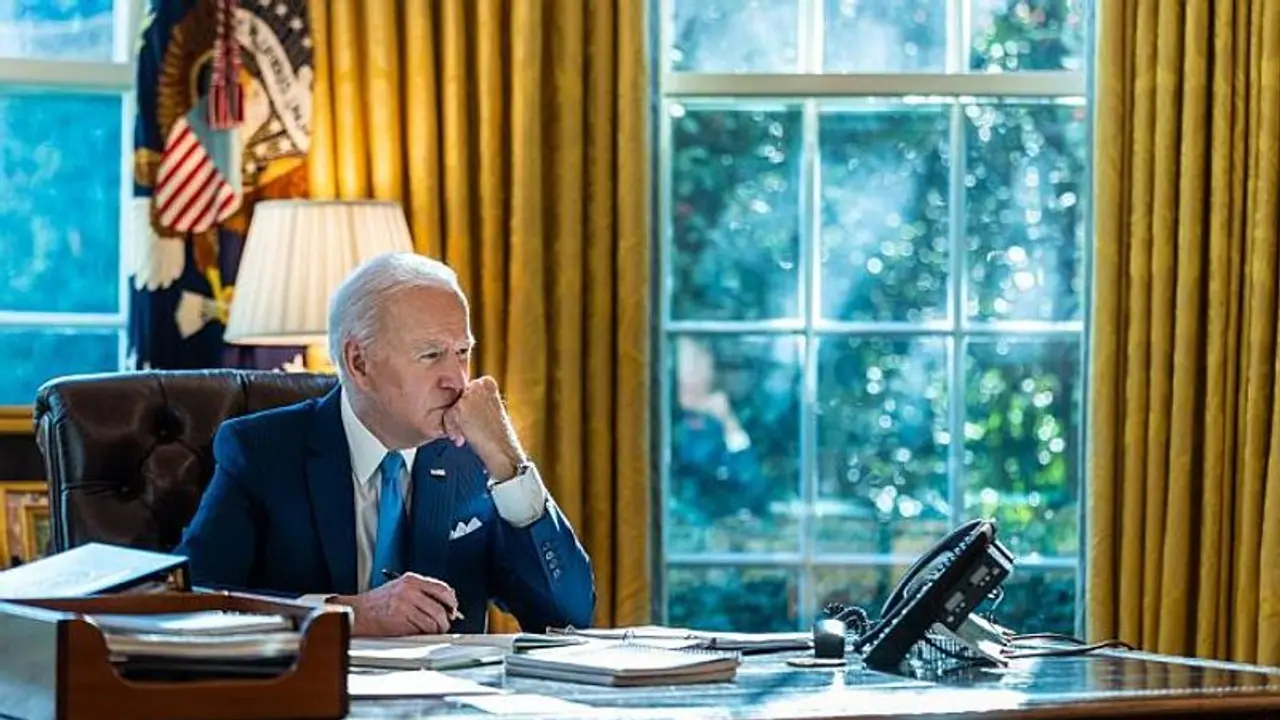Experts decode US President Joe Biden's 'commitment' towards Taiwan at the cost of rubbing China the wrong way
Amidst its diminishing credibility among Asian nations and on the sidelines of the Quad grouping's second in-person meeting, the United States has tried to pander to its partners in the Indo-Pacific region with President Joe Biden publicly announcing that his country would militarily help Taiwan if China invades it.

Last year too, Biden had made a similar remark that forced the White House to state that the United States policy has not changed on China. To date, the United States has been maintaining ambiguity on its stand on Taiwan.
When asked in the backdrop of the United States' refusal to get involved militarily in the war between Russia and Ukraine whether his administration will intervene if China invaded Taiwan, President Joe Biden said, "Yes, that's the commitment we made."
It must be mentioned that the United States has in the past acknowledged the 'One China' policy that says Taiwan is a part of China. However, the US has never recognised Beijing's claim to the self-governing island of 23 million.
Asianet Newsable spoke to international relations experts to understand the ramifications of the US President's remark.
"There has been a lot of speculation about an attack on Taiwan. I believe given the development in Ukraine it is seen as a possibility that China can attack Taiwan. Further, there are reports and the release of a leaked audio recording of a PLA meeting where the possibility of the attack was discussed. Any attack on Taiwan would put the US credibility in Asia under stress. So, Biden issuing statement on Taiwan security reinforces the US commitment to Asia and its guarantee to its alliance partners and other countries which are dependent on the US for security purpose," Dr Pankaj Jha, Professor at Jindal School of International Affairs said.
On being asked about the change in the US stand on 'One China' policy, Dr Pankaj Jha said, "... US -- in the last few statements in the year 2022 -- has diluted the 'One China' policy and clearly shows that in terms of approach and in terms of their outcome they do not toe the Chinese line. China wants to dilute Taiwan's existence and the US believes that it is the right time to reinforce its commitment and revisit its approach to protecting Taiwan."
On the 'One China' policy, Biden told reporters, "We agree with the policy. We signed on to it, and all the attendant agreements were made from there. But the idea that it can be taken by force, just taken by force, is (just not) appropriate."
Dr Vijay Kumar Verma, Associate Professor of Political Science and International Relations at the University of Delhi's Dayal Singh College was of the view that it is a 'now or never' option for Biden.
"Biden knows that no country on the earth today can match the shrewdness and silently marching ambition of China being the global power in the world. He also knows that every relation is a power and interest relation in the world on the global fora. So this neo-love for Taiwan is an open declaration of check and balance strategy of the Biden administration against the growing power of China,' Dr Vijay said.
"Even for India, Pakistan may be enemy number one, but china is threat number one," Dr Vijay Kumar Verma added.
White House clarification
Within hours of his remark, a White House official said that the official position on the matter is still the same.
"As the President said, our policy has not changed. He reiterated our 'One China' policy and our commitment towards peace and stability across the Taiwan Strait."
"He also reiterated our commitment under the Taiwan Relations Act to provide Taiwan with the military means to defend itself," the official added.
China reacts
Expressing its strong dissatisfaction and firm opposition to the US President's remarks, China said that no external force will be allowed to interfere in its internal affairs.
Chinese foreign ministry spokesperson Wang Wenbin said, "On issues concerning China's sovereignty and territorial integrity and other core interests, there is no room for compromise."
Wenbin also urged the United States to follow the 'One China' principle "... be cautious in words and deeds on the Taiwan issue, and not send any wrong signal to pro-Taiwan independence and separatist forces."
"We mean what we say. It is not China that misrepresents the US policy. It is the US that has been constantly reneging on the bilateral consensus and its own original position and commitments to the one-China principle."
Also Read: PM Modi's reforms changing India into a model landscape: Japan Inc
